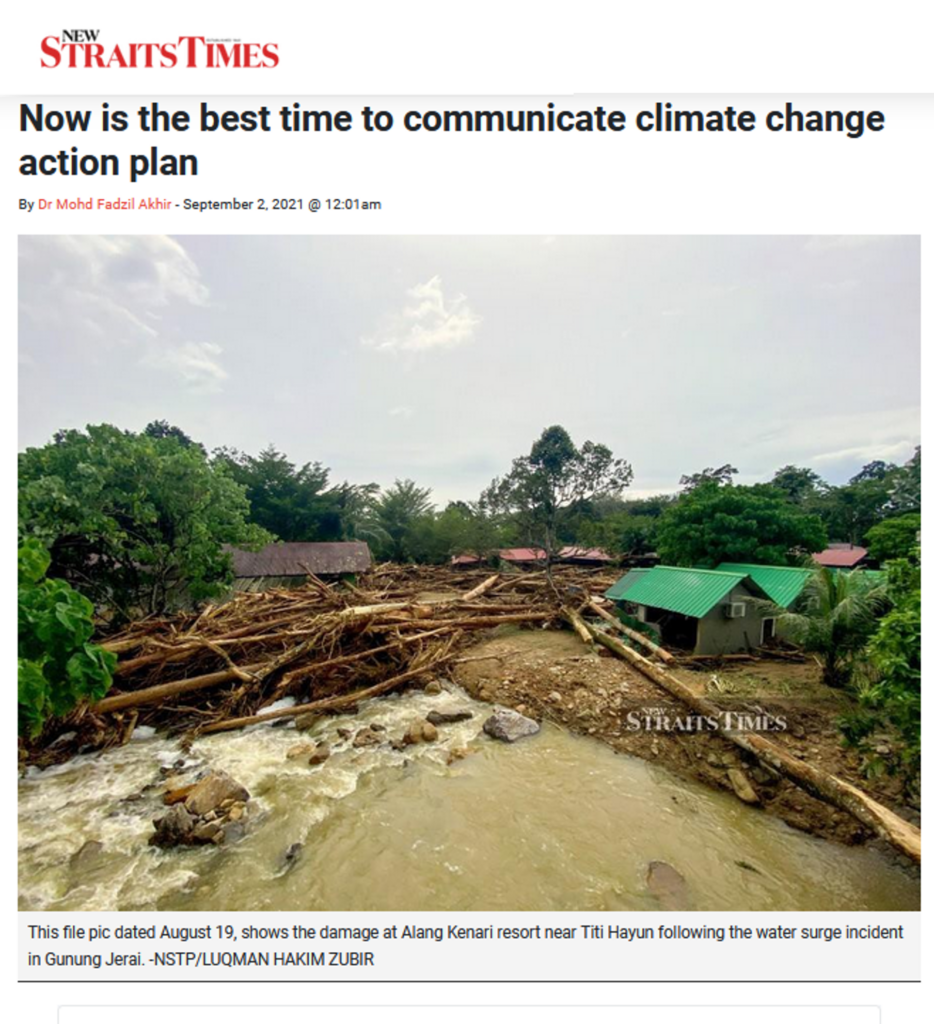
It is devastating to see water gushing down slopes around the Gunung Jerai catchment area, affecting thousands of people in Kedah.
Many started to blame deforestation and some reserved blame for climate change. Twitter feeds started filling up with comments, but few threads attracted attention.
Some Internet users used Google Earth snapshots, comparing freely available high-end satellites images of different time frames, trying to prove what caused it.
In this information age, people need an explanation with substance, not just a theory. Their effort in diving into every accessible information to support their view is nothing short of impressive.
It is progress for Malaysians when people move their trust from theory to empirical data. A positive thing when science becomes the central point of discussion.
Recent trends show that trust in science-based decisions is very high. The vaccination programme is a straightforward example.
Swift action in thumping vaccine sceptics was founded based on scientific explanation. It is time for scientists to increase science advocacy so essential information can be translated into impactful action.
An Intergovernmental Panel on Climate Change (IPCC) report, published in early August, is the best tool for it. After all, the 3,000-page report describes it as a “code red for humanity”.
If scientists use this output properly, it might cause fear of the danger of climate change while instilling awareness that we can still do something about it. Both will effectively carry a sense of urgency and climate literacy.
The IPCC report took almost eight years to prepare. It involved a team of 234 scientists from more than 60 countries, among the best in their respective fields.
The report required them to digest nearly 15,000 scientific papers and derive the interconnectivity between them, which carries loads of information on what will change our physical Earth.
Later, 195 representatives from United Nations member countries reviewed the reports in a few stages. It took longer than expected because the first draft of the current report alone had more than 23,000 review comments from experts.
Meanwhile, the second draft had more than 50,000 review comments, which were amended before the preparation of the final draft. It is by far the most comprehensive and sophisticated IPCC report ever made. Because of this lengthy and systematic examination by fellow scientists, it is almost impossible to deny the findings.
So, what does the report find? The IPCC emphasises that the global temperature has increased more than 1.1 per cent, the highest since 125,000 years ago.
The ice melting is at a tipping point and will speed up the sea- level rise, which tells us that coastal erosion will worsen and a few coastal cities will be underwater in a few decades.
Most importantly, for us in Malaysia, the report underlines the increase in extreme weather events such as rainfall, drought, storm and flooding.
To trust the IPCC report is one thing, but to act upon it is another. The education sector is trying its best to develop this trait. Because, for several decades, there have been widespread and organised campaigns to generate scepticism in science. Some were funded by big industries threatened by the findings of modern science.
Ideas flow swiftly in this Internet age, where social media influencers and celebrities can easily give traction to these silly ideas through their millions of followers.
Our climate is changing, so must our approach. The changes we need to make are complex, especially when we lack the skills to communicate our findings and increase public literacy on climate-related action.
This effort demands large-scale, collective action: to build and create interest, change mindsets, have radically better public advocacy and perhaps, rebuild our education system.
Modern society relies on trust in experts. We must grab this opportunity with the most extensive data and information available to us. Now is the best time to communicate climate change action.
Like the Covid-19 vaccination programme, we want to translate information into action. Just knowing and agreeing about vaccines is not enough without taking the jab.
The same goes for climate change. It is happening and we can feel it. Many of the most dire effects of climate change can still be avoided by taking action.
The writer is a professor and director, Institute of Oceanography and Environment, UMT
The views expressed in this article are the author’s own and do not necessarily reflect those of the New Straits Times
